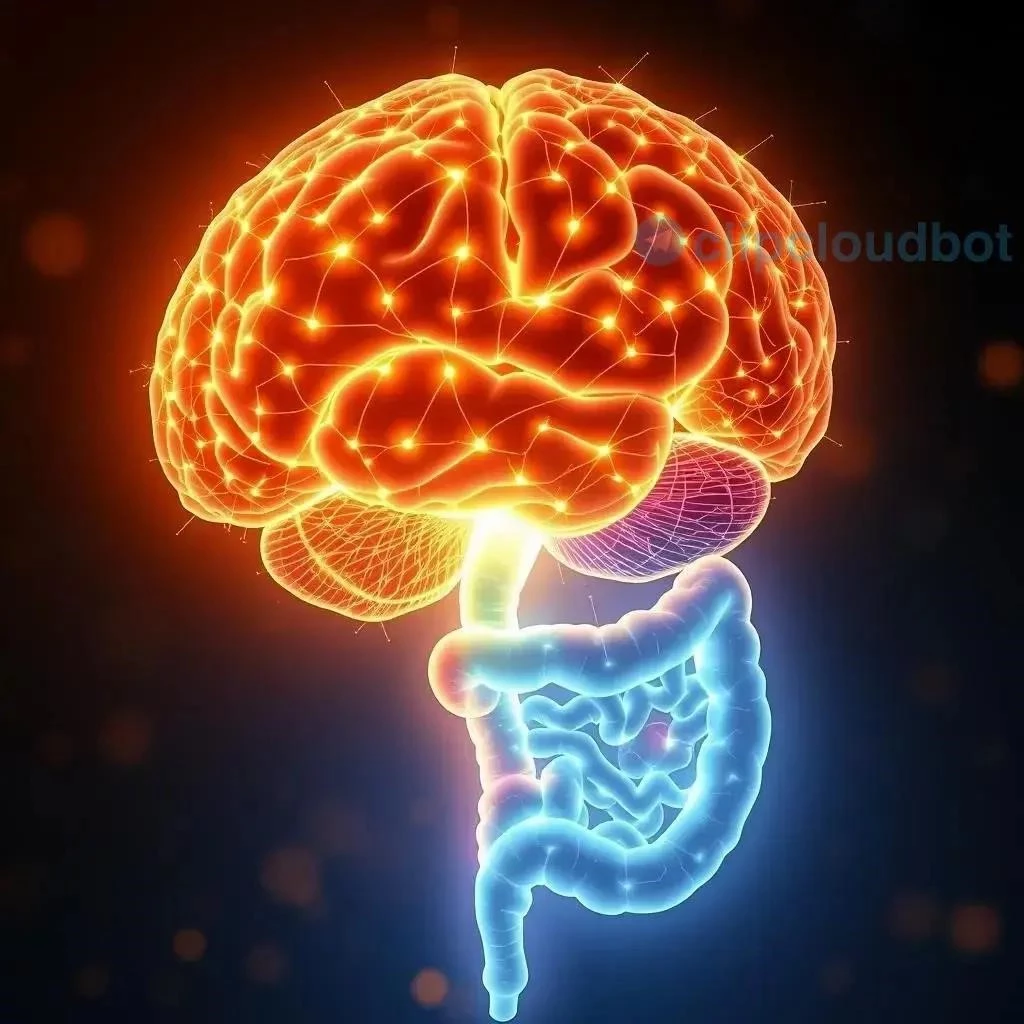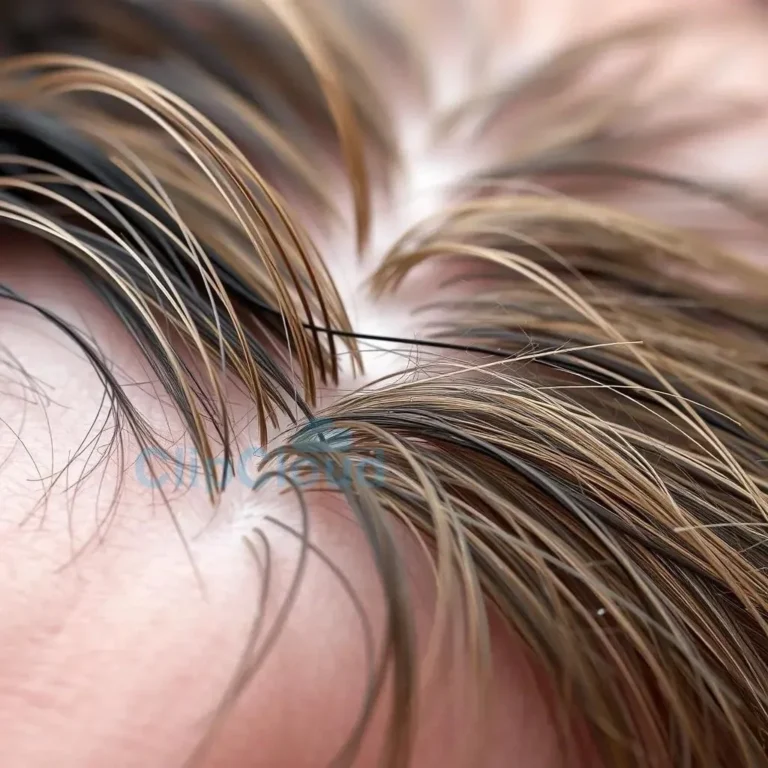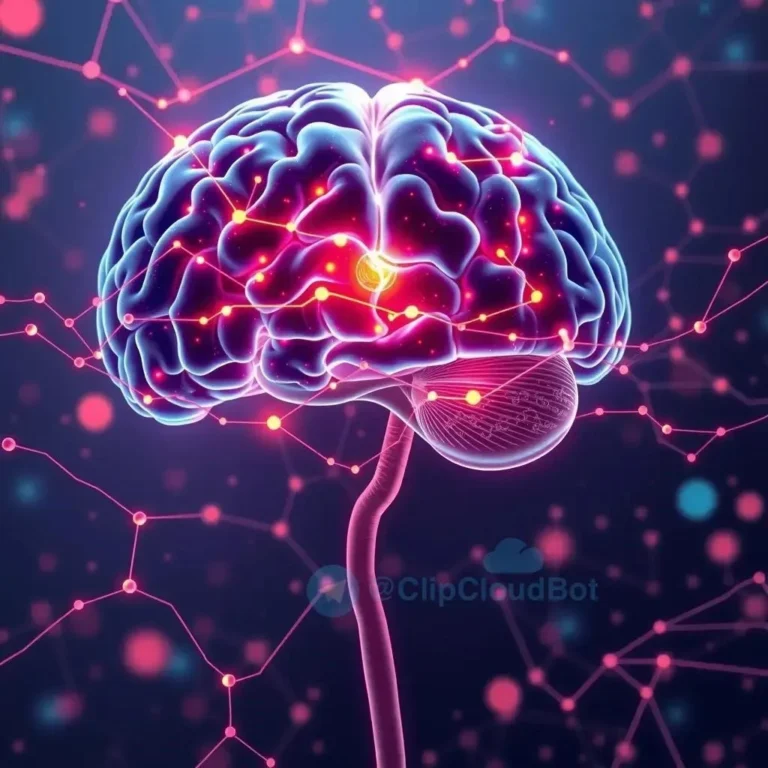The Gut-Brain Connection: How Gut Health Impacts Mental Clarity
The Gut-Brain Connection Explained
The gut and brain are in constant communication, linked by the vagus nerve, a complex network transmitting signals between them. This intricate pathway allows the gut to influence brain function, including mood, focus, and even cognitive processes. A balanced gut microbiome, teeming with beneficial bacteria, supports this crucial communication. Conversely, an imbalance, often called dysbiosis, can disrupt signaling and potentially contribute to brain fog, impacting mental clarity and overall cognitive well-being.
Signs Your Gut Might Be Impacting Your Mental Clarity
Experiencing persistent brain fog? Your gut might be playing a role. While brain fog isn’t a medical diagnosis in itself, it’s a commonly reported symptom encompassing difficulty concentrating, feeling mentally sluggish, and struggling with memory or decision-making. If these cognitive woes coincide with certain digestive issues, it could indicate a gut-brain connection worth exploring.
Here are some signs your gut health might be influencing your mental clarity:
- Digestive Distress: Frequent bloating, gas, constipation, diarrhea, or abdominal pain can be signals of gut imbalance. These issues may disrupt the gut microbiome and impact the gut-brain axis, potentially affecting cognitive function.
- Food Sensitivities: Notice brain fog after consuming certain foods? You might have undiagnosed food sensitivities or intolerances. Reactions to gluten, dairy, or other common triggers can cause inflammation in the gut, which may manifest as brain fog.
- Mood Changes: The gut produces a significant amount of serotonin, a neurotransmitter crucial for mood regulation; Gut imbalances can disrupt serotonin production, potentially contributing to anxiety, depression, or irritability, further impacting mental clarity.
- Low Energy Levels: Chronic fatigue and low energy can be related to nutrient absorption issues in the gut. If your gut isn’t functioning optimally, it might not be efficiently absorbing essential vitamins and minerals needed for energy production and cognitive function.
- Skin Issues: Conditions like eczema, acne, or rosacea can sometimes be linked to gut health. An unhealthy gut can trigger inflammation throughout the body, impacting skin health and potentially contributing to brain fog.
- Autoimmune Conditions: Individuals with autoimmune conditions often experience gut imbalances. These imbalances can exacerbate symptoms and potentially contribute to cognitive dysfunction, including brain fog.
If you consistently experience brain fog alongside these digestive and other related symptoms, it’s important to consider the possibility of a gut-brain connection. Tracking your symptoms, dietary habits, and any other relevant factors can be helpful when consulting with a healthcare professional. They can help determine the underlying cause of your brain fog and recommend appropriate strategies for improving both your gut and cognitive health.
The Role of Diet and Inflammation
Diet plays a crucial role in shaping the gut microbiome and influencing inflammation, both of which can significantly impact brain health and mental clarity. What you eat directly affects the balance of bacteria in your gut, and this balance, in turn, can either fuel or combat inflammation throughout the body, including the brain.
Inflammatory Foods and the Gut:
- Processed Foods: Highly processed foods, laden with added sugars, artificial ingredients, and unhealthy fats, can disrupt the gut microbiome and promote inflammation. This can negatively impact the gut-brain axis, contributing to brain fog and other cognitive issues.
- Sugar: Excessive sugar intake feeds harmful bacteria in the gut, leading to imbalances and increased inflammation. This can impair cognitive function and contribute to feelings of mental sluggishness.
- Refined Carbohydrates: White bread, pastries, and other refined carbohydrates can also disrupt gut balance and promote inflammation, potentially affecting mental clarity.
Anti-Inflammatory Foods and the Gut:
- Fiber-Rich Foods: Fruits, vegetables, and whole grains are excellent sources of fiber, which acts as prebiotics, nourishing beneficial gut bacteria. A healthy gut microbiome helps regulate inflammation and supports optimal brain function.
- Fermented Foods: Yogurt, kefir, sauerkraut, and kimchi are rich in probiotics, live beneficial bacteria that support gut health. These foods can help restore balance to the gut microbiome and reduce inflammation.
- Omega-3 Fatty Acids: Found in fatty fish like salmon and plant-based sources like flaxseed, omega-3 fatty acids have potent anti-inflammatory properties that can benefit both gut and brain health.
- Polyphenol-Rich Foods: Berries, dark chocolate, and colorful vegetables are packed with polyphenols, antioxidants that combat inflammation and support a healthy gut microbiome.
By focusing on a diet rich in anti-inflammatory foods and minimizing processed foods, sugar, and refined carbohydrates, you can create a gut environment that supports mental clarity and overall cognitive well-being. Nourishing your gut with the right nutrients can help reduce inflammation, promote a balanced microbiome, and strengthen the vital gut-brain connection.
Practical Steps to Improve Gut Health for Better Cognitive Function
Taking proactive steps to improve your gut health can have a positive ripple effect on your cognitive function, helping to clear brain fog and boost mental clarity. Here are some practical strategies to nourish your gut and support your brain:
- Prioritize Whole Foods: Focus on a diet rich in fruits, vegetables, whole grains, and lean protein. These foods provide essential nutrients and fiber to support a healthy gut microbiome.
- Embrace Fermented Foods: Incorporate probiotic-rich foods like yogurt, kefir, sauerkraut, and kimchi into your diet. These foods introduce beneficial bacteria to your gut, promoting balance and diversity.
- Hydrate Consistently: Adequate water intake is crucial for overall health, including gut health. Water helps maintain the integrity of the gut lining and supports healthy digestion.
- Manage Stress Effectively: Chronic stress can negatively impact gut health. Practice stress-reducing techniques like meditation, yoga, or deep breathing exercises.
- Prioritize Sleep: Quality sleep is essential for gut health and cognitive function. Aim for 7-9 hours of restful sleep per night.
- Consider Prebiotic Supplements: Prebiotics are non-digestible fibers that feed beneficial gut bacteria. If you’re not getting enough prebiotics from your diet, consider a supplement.
- Limit Processed Foods and Sugar: Minimize consumption of highly processed foods, sugary drinks, and artificial sweeteners. These can disrupt the gut microbiome and promote inflammation.
- Introduce Probiotic Supplements (with caution): Probiotic supplements can be beneficial, but it’s best to consult with a healthcare professional before starting, as different strains have different effects.
- Chew Your Food Thoroughly: Proper chewing aids digestion and reduces the burden on your gut. Take your time and chew your food thoroughly before swallowing.
By implementing these practical steps, you can cultivate a thriving gut microbiome, which in turn can positively influence your cognitive function, reduce brain fog, and enhance mental clarity.
Lifestyle Changes to Support Gut and Brain Wellness
Beyond dietary adjustments, several lifestyle changes can significantly impact both your gut and brain health, paving the way for improved mental clarity and overall well-being. Incorporating these habits into your daily routine can create a synergistic effect, supporting the crucial gut-brain connection.
- Regular Exercise: Physical activity benefits not only your body but also your gut and brain. Exercise can diversify the gut microbiome, reduce inflammation, and enhance cognitive function.
- Stress Management Techniques: Chronic stress can wreak havoc on both gut and brain health. Explore stress-reducing practices like meditation, yoga, deep breathing, or spending time in nature.
- Mindful Eating Practices: Pay attention to your body’s hunger and fullness cues. Avoid distractions while eating and savor each bite, promoting better digestion and nutrient absorption.
- Prioritize Quality Sleep: Adequate sleep is crucial for gut and brain restoration. Aim for 7-9 hours of uninterrupted sleep per night to support optimal function.
- Hydration Habits: Stay adequately hydrated throughout the day. Water supports healthy digestion, nutrient absorption, and overall gut function, indirectly benefiting brain health.
- Limit Alcohol Consumption: Excessive alcohol intake can disrupt the gut microbiome and contribute to inflammation. Moderate your alcohol consumption to support gut and brain wellness.
- Quit Smoking: Smoking negatively impacts gut health and increases inflammation throughout the body, affecting both gut and brain function. Quitting smoking is a crucial step for overall well-being.
- Connect with Nature: Spending time outdoors has been linked to improved gut microbiome diversity and reduced stress levels, benefiting both gut and brain health.
By embracing these lifestyle changes, you can create a holistic approach to supporting your gut and brain health. These interconnected systems thrive on mindful habits and positive lifestyle choices, leading to improved mental clarity, enhanced cognitive function, and a greater sense of overall well-being.
When to Seek Professional Guidance
While lifestyle changes and dietary adjustments can often improve gut health and reduce brain fog, it’s important to know when to seek professional guidance. Certain situations warrant the expertise of a healthcare professional to determine the underlying cause of your symptoms and develop a personalized treatment plan.
- Severe or Persistent Symptoms: If your brain fog is severe, persistent, or significantly impacting your daily life, consult a doctor. They can assess your overall health and rule out any underlying medical conditions.
- Digestive Issues Worsening: If you experience worsening digestive symptoms like chronic bloating, abdominal pain, persistent diarrhea or constipation, or blood in your stool, seek medical attention promptly.
- Unexplained Weight Loss: Unexplained weight loss accompanied by brain fog or digestive issues should be evaluated by a healthcare professional to determine the underlying cause.
- Suspected Food Allergies or Intolerances: If you suspect you have food allergies or intolerances contributing to your symptoms, consult a doctor or registered dietitian for proper testing and guidance.
- Mood Changes or Anxiety: If brain fog is accompanied by significant mood changes, increased anxiety, or feelings of depression, seek professional help from a mental health professional or your doctor.
- Difficulty Implementing Lifestyle Changes: If you’re struggling to implement necessary lifestyle changes or dietary adjustments on your own, consider seeking guidance from a registered dietitian or nutritionist.
A healthcare professional can help identify any underlying medical conditions contributing to your brain fog and digestive issues. They can also recommend specific tests, personalized dietary advice, and appropriate treatment strategies to address your individual needs and improve both your gut and cognitive health. Don’t hesitate to seek professional guidance if you’re concerned about your symptoms.






